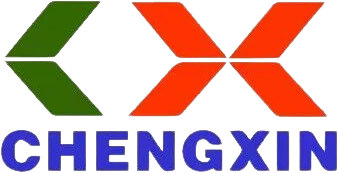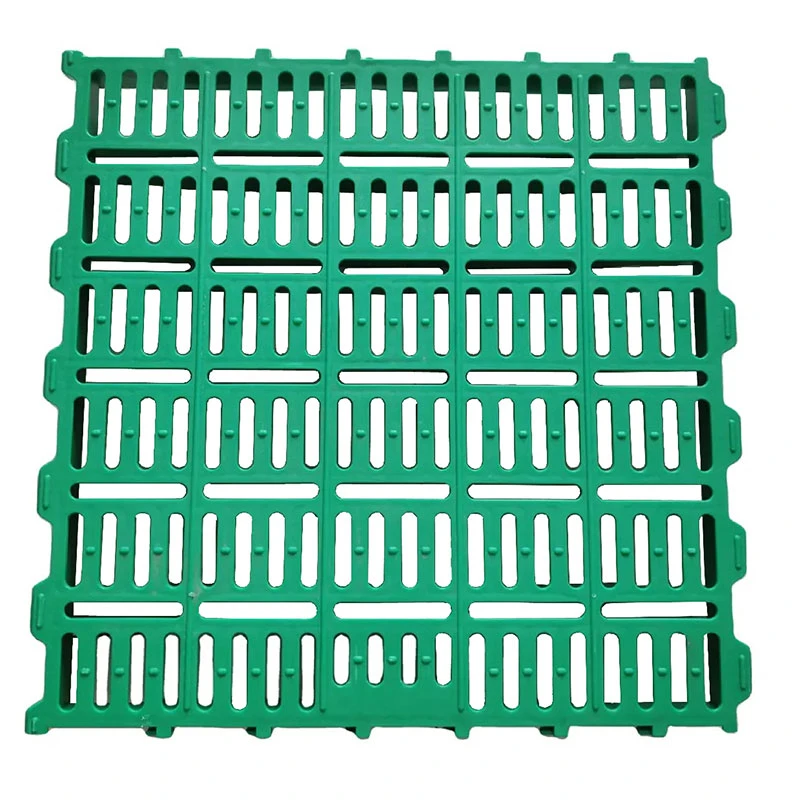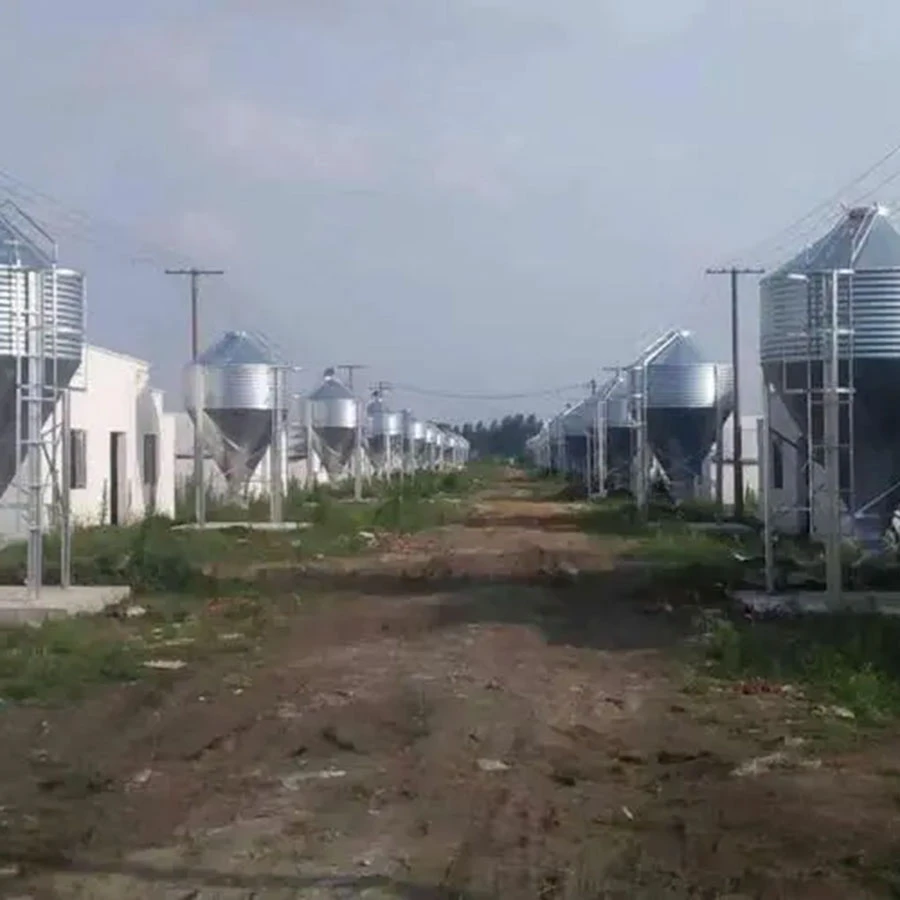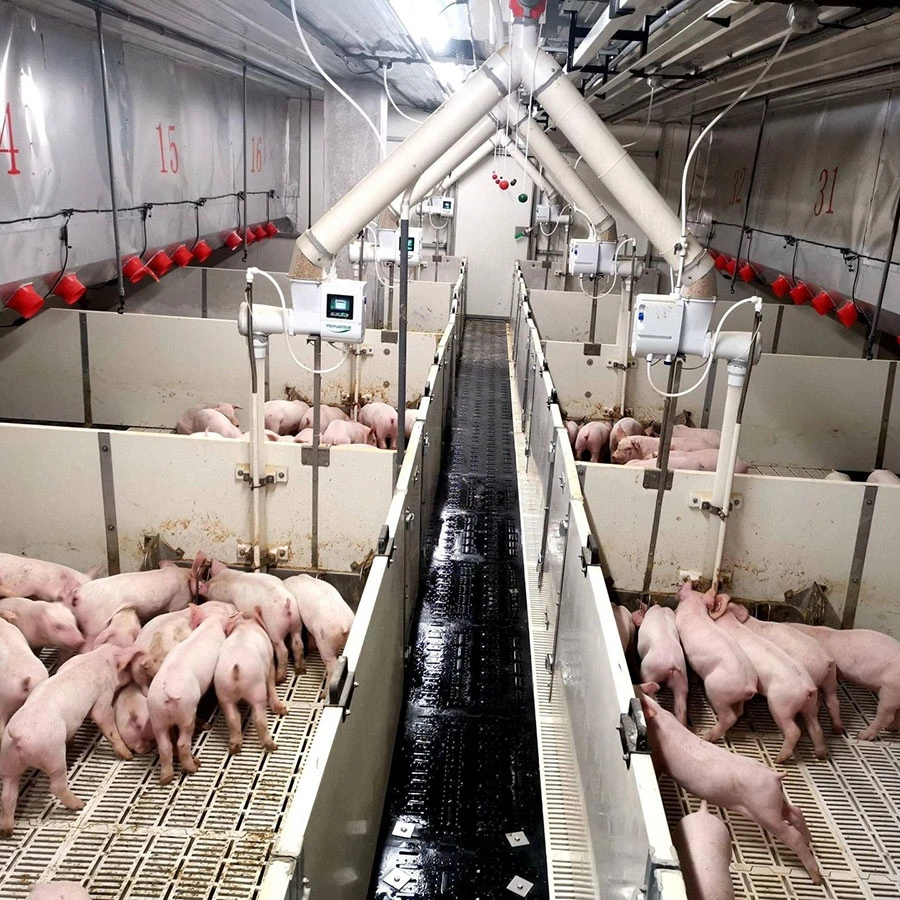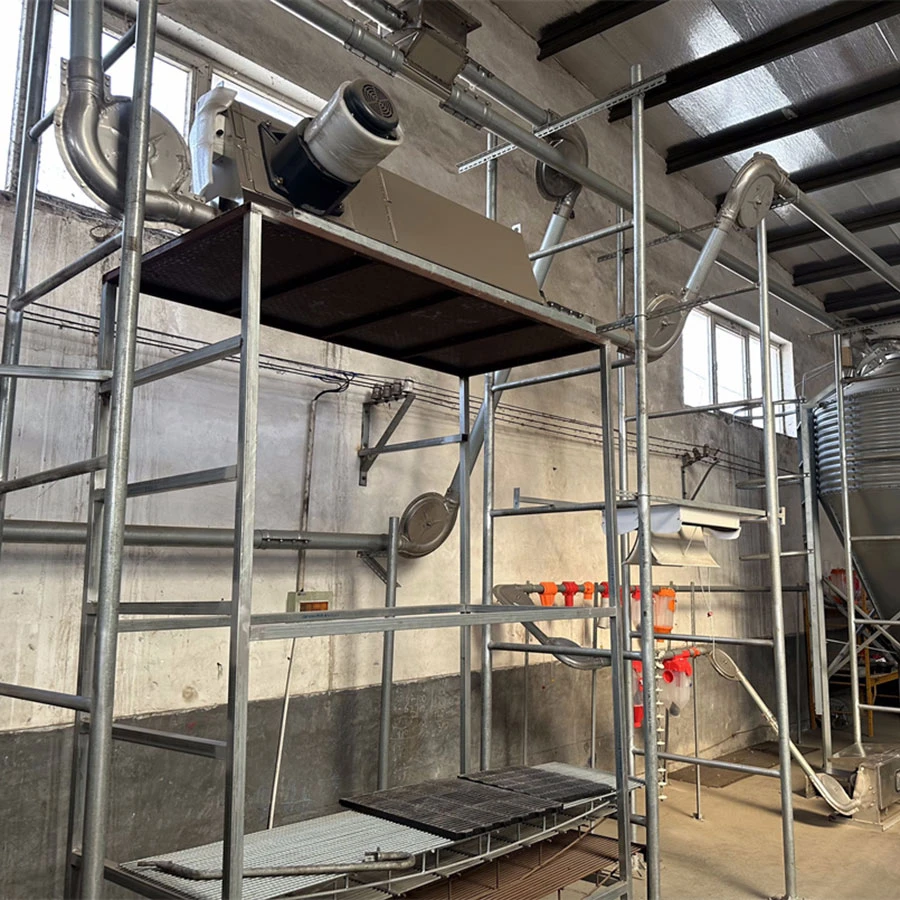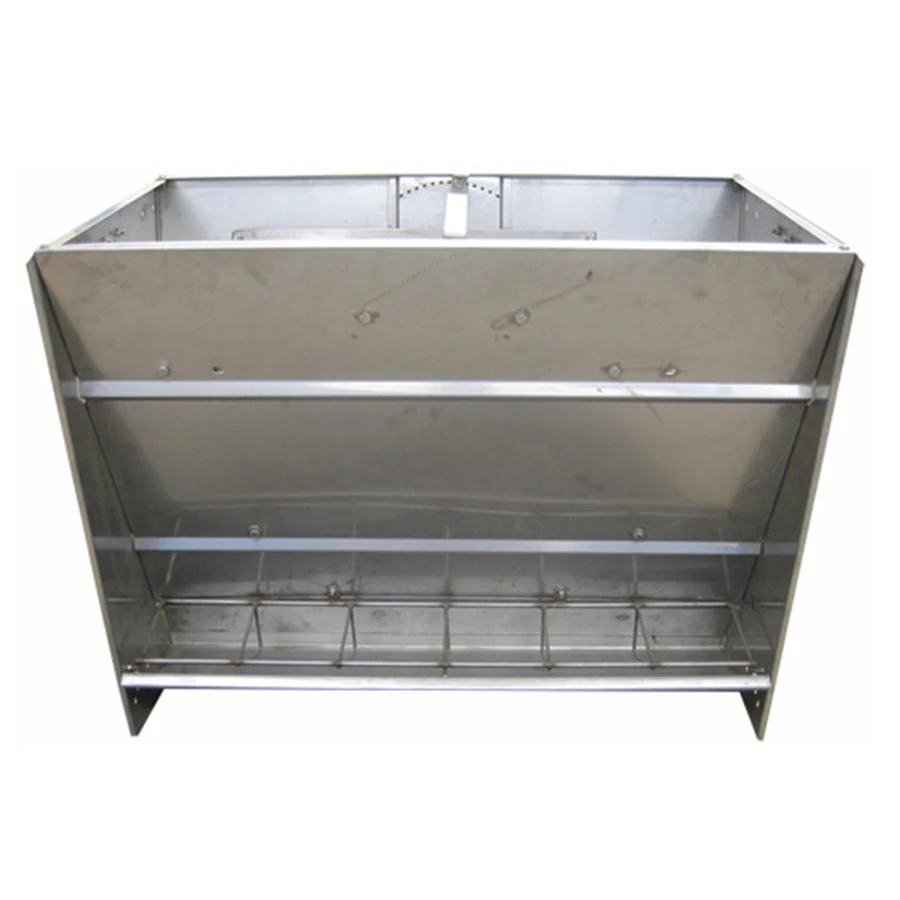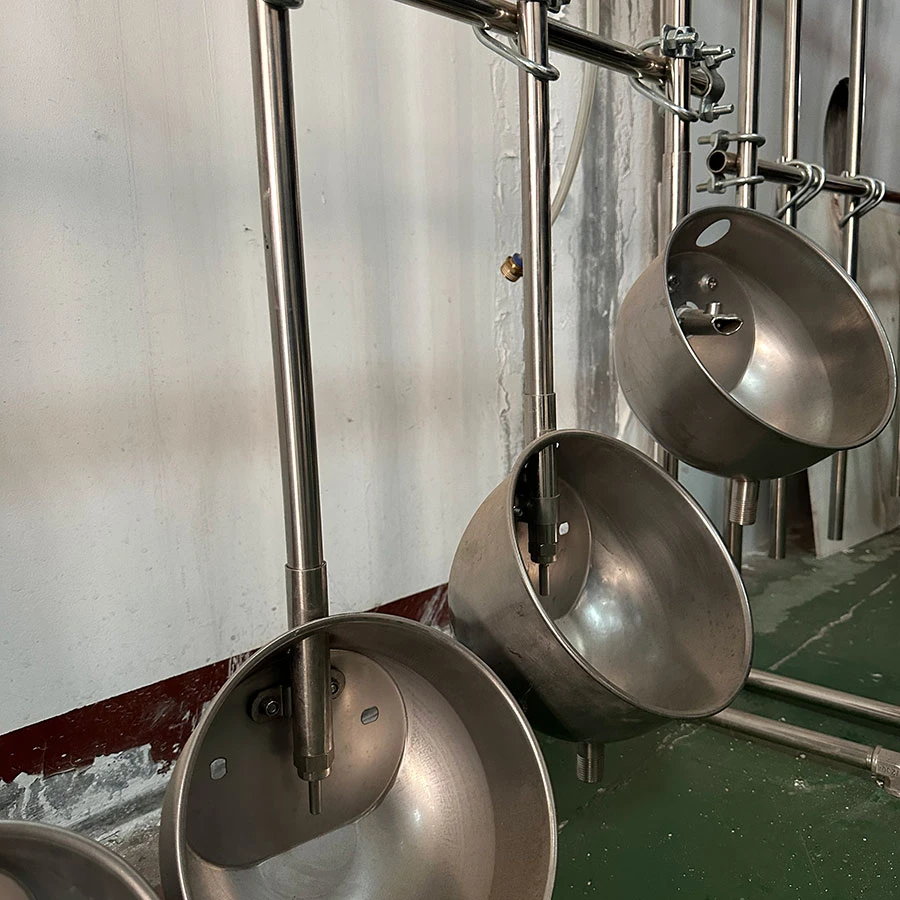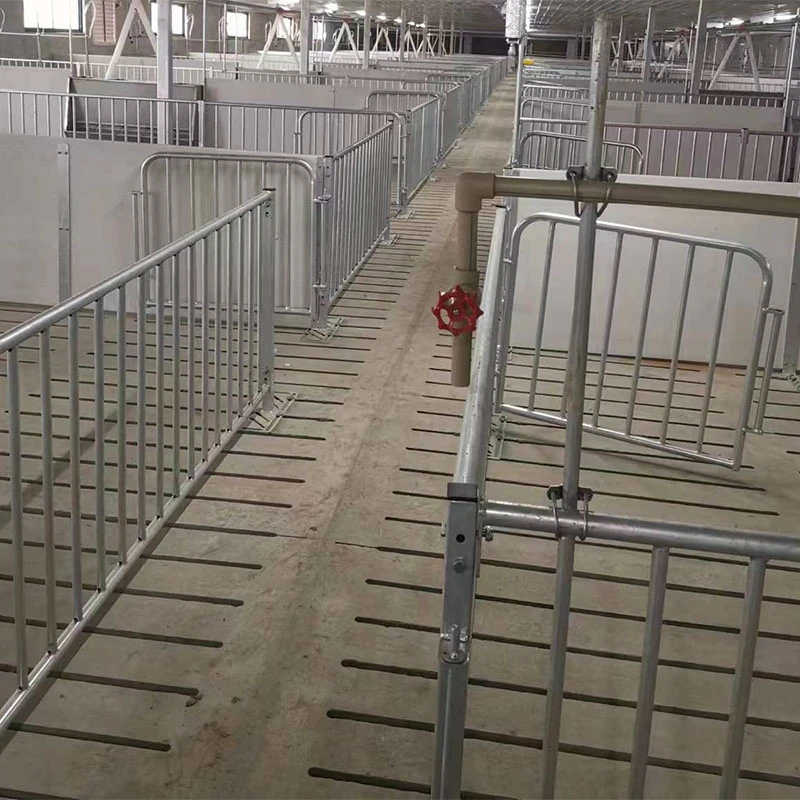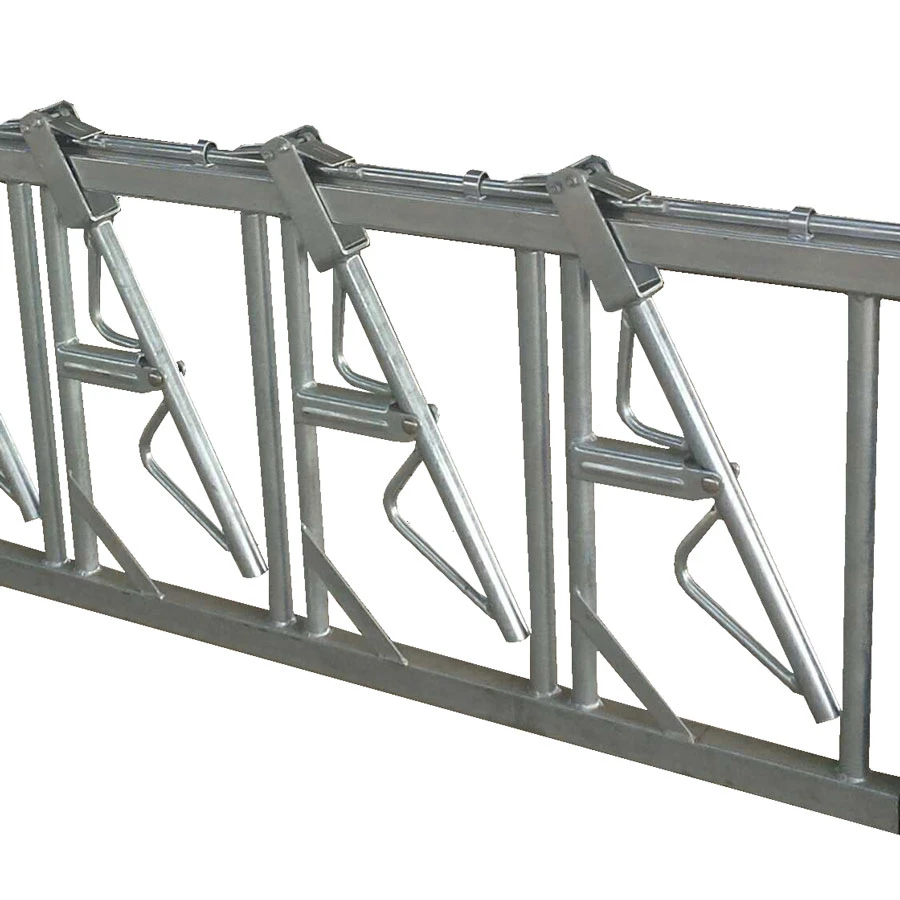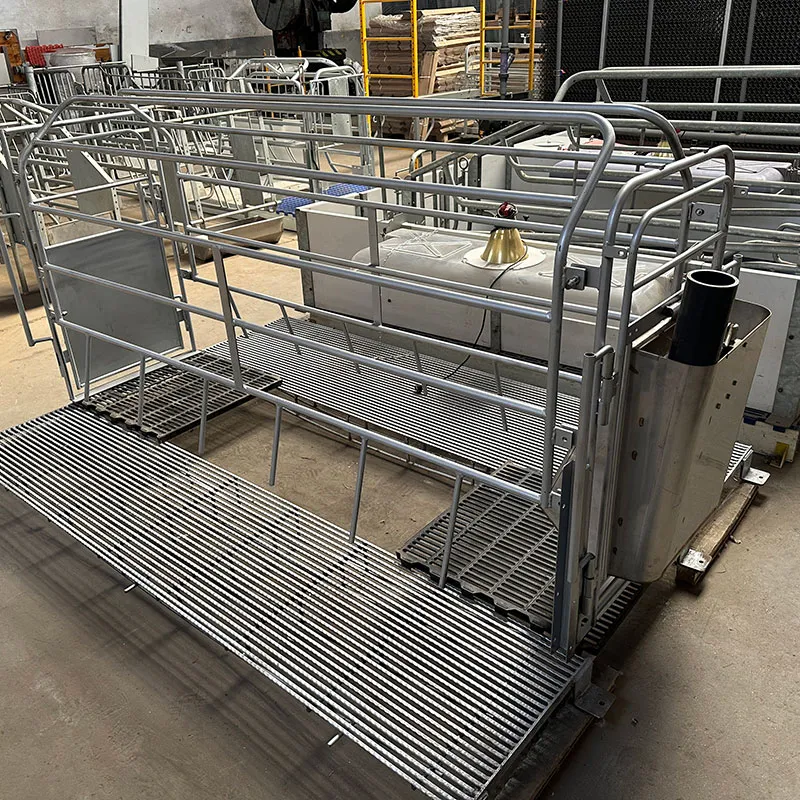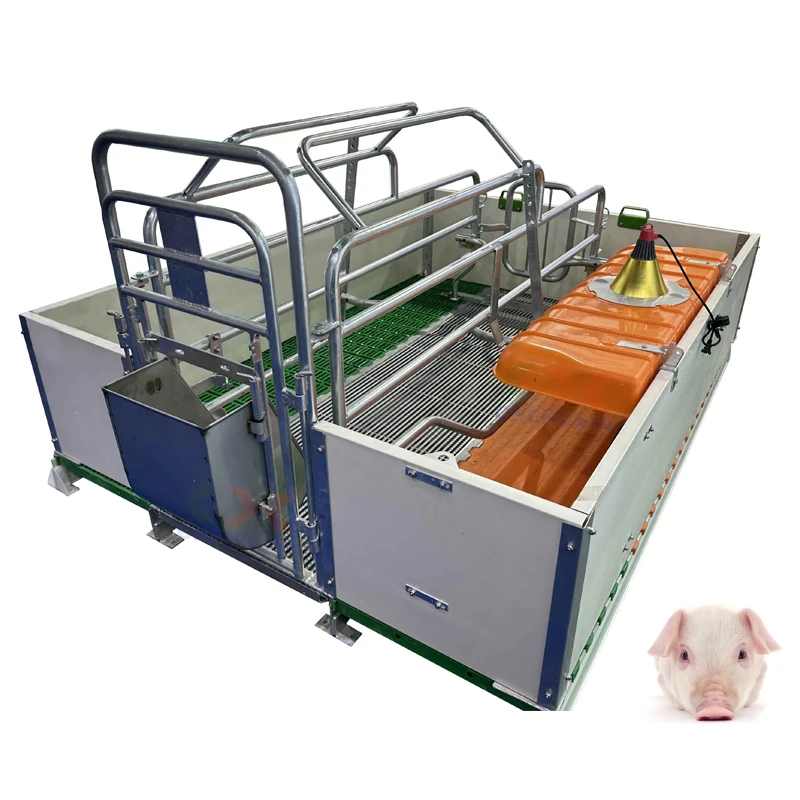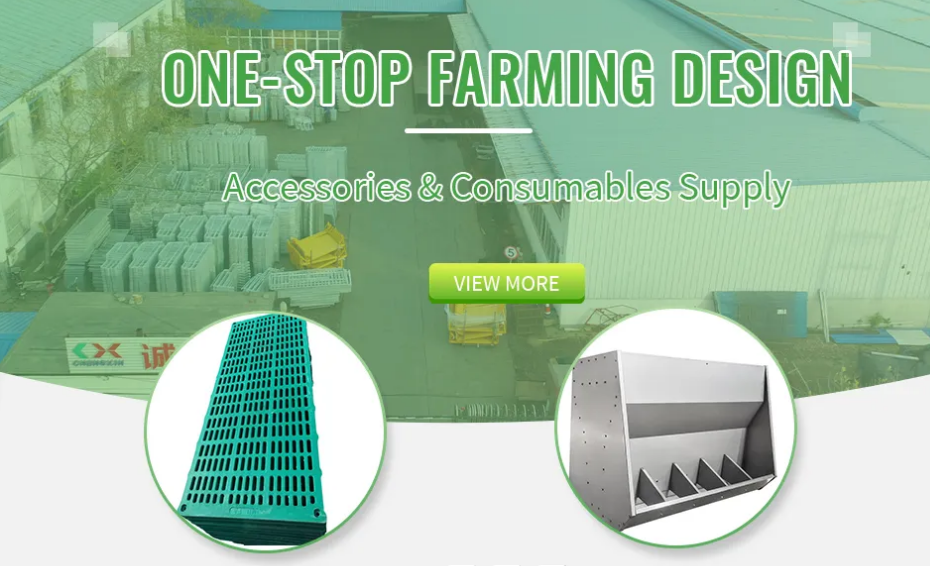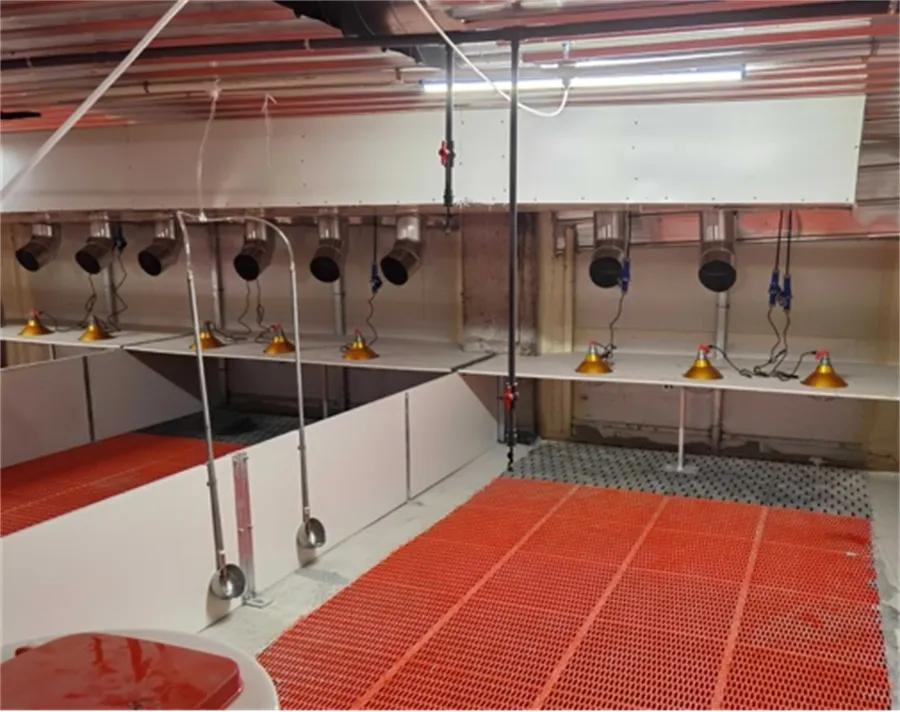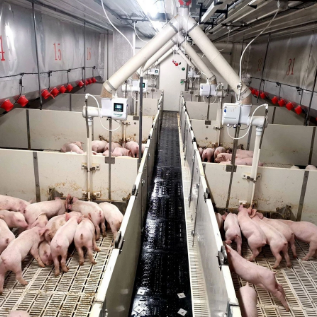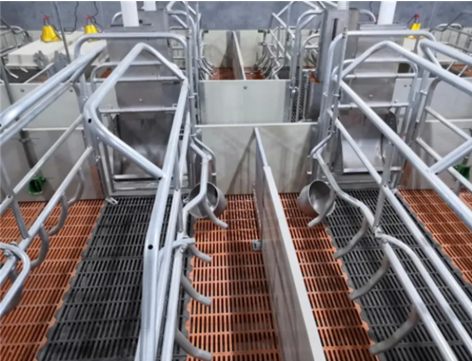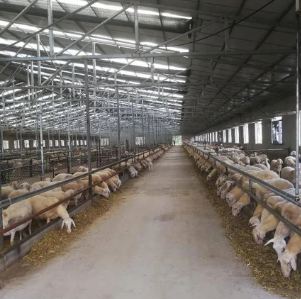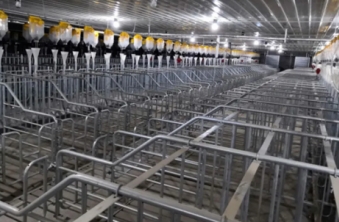Industry Trends in Swine Nursery Equipment
The global swine industry is undergoing a significant transformation, driven by increasing consumer demand for quality pork, stringent animal welfare regulations, and the imperative for operational efficiency. Modern pig farming necessitates advanced equipment that supports optimal animal health, maximizes growth rates, and minimizes mortality. Central to achieving these objectives in the early stages of a piglet's life is the advanced nursery crate. Current trends indicate a shift towards systems that provide superior hygiene, thermal comfort, and dedicated feeding areas, moving away from traditional, less sophisticated designs.
Emerging technologies include automated feeding systems, environmental controls for precise temperature and humidity management, and enhanced structural designs that prevent injury and facilitate cleaning. There's a growing emphasis on modular and scalable solutions that can adapt to various farm sizes and production models. Furthermore, the integration of data analytics for monitoring piglet performance and environmental conditions within the nursery environment is becoming a critical tool for informed decision-making, ultimately leading to higher profitability and more sustainable farming practices.
Manufacturing Process of the Weaner Nursery Stall
The production of a high-quality Weaner Nursery Stall, a sophisticated form of nursery crate, involves a meticulous multi-stage manufacturing process designed to ensure durability, hygiene, and optimal piglet welfare. Adherence to strict material selection and fabrication standards is paramount.
1. Material Selection and Preparation
- Structural Steel: High-grade carbon steel (e.g., Q235B) is selected for the main frame components due to its excellent strength-to-weight ratio and weldability. Material certifications ensure compliance with industry standards.
- Flooring Materials: Premium virgin polypropylene (PP) or polyvinyl chloride (PVC) plastic slats are chosen for the flooring. These materials are non-porous, corrosion-resistant, and provide excellent traction for piglets, reducing slips and injuries. Cast iron slats may be incorporated for specific weight-bearing sections.
- Feeding Troughs: High-density polypropylene (HDPE) or stainless steel (SS304) is used for feeding troughs, ensuring chemical resistance to feed acids and ease of cleaning.
2. Fabrication and Forming
- Cutting and Bending: Steel pipes and sheets are precisely cut using CNC laser cutting or plasma cutting machines to achieve exact dimensions. Bending machines then form the required angles for structural integrity.
- Welding: Components are joined using advanced welding techniques (e.g., MIG/MAG welding) by certified welders. Each weld joint undergoes visual inspection and, for critical points, non-destructive testing (NDT) to ensure structural soundness and prevent premature failure.
- Plastic Molding: Plastic flooring slats and feeder components are manufactured using high-pressure injection molding processes, ensuring consistent quality, smooth surfaces, and precise interlocking features.
3. Surface Treatment
- Hot-Dip Galvanization: All steel components undergo hot-dip galvanization according to ISO 1461 standards. This process involves cleaning, pickling, fluxing, and dipping the steel into molten zinc. The resulting zinc coating, typically 60-80 microns thick, provides superior corrosion resistance against the aggressive environment of pig farms (ammonia, moisture) and extends the service life to 10-15 years, significantly outperforming painted or electro-galvanized alternatives.
- Powder Coating (Optional): For certain non-structural elements or specific aesthetic requirements, electrostatic powder coating might be applied over galvanization for an additional layer of protection and finish.
4. Assembly and Quality Control
- Modular Assembly: Components are assembled into modular units, facilitating easier transportation and on-site installation. Precision jigging ensures accurate alignment.
- Testing Standards: Each completed nursery crate undergoes rigorous quality control. This includes dimensional checks against ANSI/ASME standards, load-bearing tests for flooring and support structures, and visual inspections for any defects in galvanization or welding. Functionality of movable parts, such as anti-crush bars and gate latches, is verified.
- Final Packaging: Products are carefully packaged to prevent damage during transit, often with protective wrapping and robust crating for international shipping.
The target industry for these advanced piglet nursery crate systems is primarily commercial swine farming, encompassing both farrow-to-finish operations and specialized piglet producers. The advantages manifest in typical application scenarios through enhanced energy saving (due to better thermal insulation of plastic flooring and controlled environments), superior corrosion resistance, and significantly improved animal welfare outcomes. These contribute directly to reduced veterinary costs and higher average daily gains (ADG) for piglets.
Technical Specifications: Weaner Nursery Stall
Our Weaner Nursery Stall is engineered with precision to provide an optimal environment for piglets post-weaning, focusing on robust construction, ergonomic design, and hygienic properties. Below are the detailed specifications for our flagship piglet nursery crate model.
| Parameter | Specification |
|---|---|
| Product Name | Aufzuchtstall für Absetzferkel |
| Overall Dimensions (L x W x H) | 2200mm x 1800mm x 1000mm (Custom sizes available) |
| Frame Material | Q235B Hot-Dip Galvanized Steel (ISO 1461 Compliant) |
| Flooring Material | Virgin PP/PVC Slats with optional Cast Iron sections |
| Feeder Type | Dry/Wet Feeder (SS304 or HDPE), adjustable feed flow |
| Watering System | Nipple Drinkers (SS304) with adjustable height |
| Target Piglet Weight | 7 kg to 30 kg |
| Piglet Capacity per Crate | 8-12 piglets, depending on final weight |
| Gates | Sliding or Hinged, secure latching mechanism |
| Surface Treatment | Hot-dip Galvanization (minimum 60µm zinc coating) |
| Service Life Expectancy | 10-15 years under proper maintenance |
| Key Features | Smooth, gap-controlled plastic slats; adjustable feeder height; anti-crush design; easy cleaning; superior corrosion resistance. |
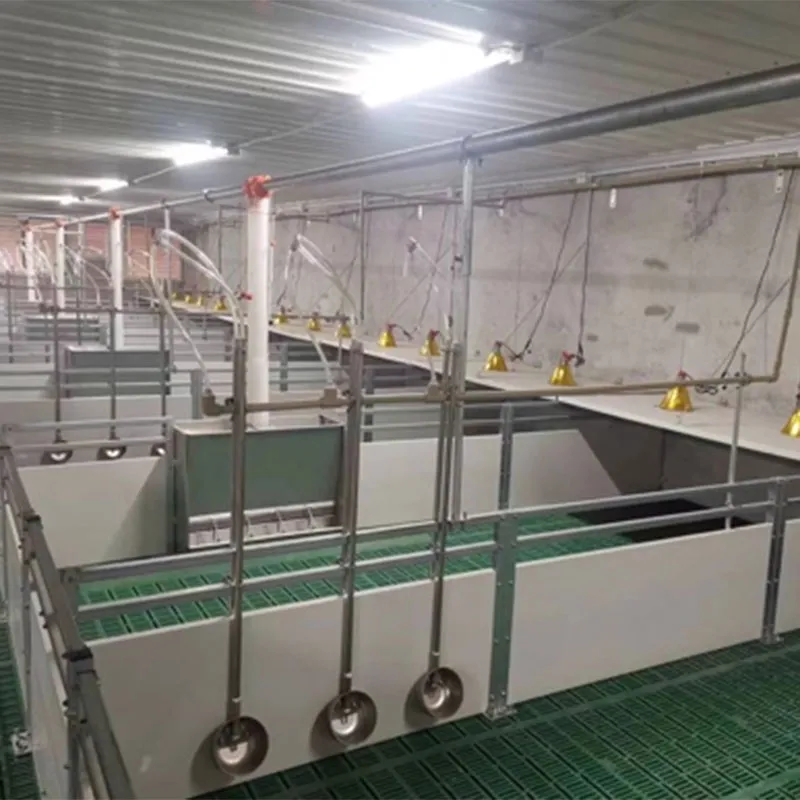
Application Scenarios and Technical Advantages
The Weaner Nursery Stall is specifically designed for the critical post-weaning period, ensuring a smooth transition for piglets. Its application extends across various scales of swine production, from large-scale commercial operations to specialized breeding facilities. The technical advantages it offers are directly linked to improved productivity and animal welfare.
Typical Application Scenarios:
- Commercial Swine Farms: Integrated into high-volume production lines to manage large cohorts of weaned piglets, optimizing space utilization and daily throughput.
- Breeding and Genetic Centers: Used for housing valuable genetic stock during the nursery phase, where precise environmental control and individual animal monitoring are crucial.
- Research and Development Facilities: Provides a controlled and standardized environment for nutritional studies, vaccine trials, and behavioral research on piglets.
Technical Advantages:
- Enhanced Piglet Health and Welfare: The smooth, non-abrasive plastic slatted flooring reduces foot injuries and promotes hygiene by allowing waste to fall through. The optimized slat gap prevents leg entrapment, a common issue in older designs. This minimizes stress and the risk of disease transmission, supporting the piglet's immune system during a vulnerable period.
- Superior Corrosion Resistance: The hot-dip galvanized steel frame provides exceptional protection against the highly corrosive environment of pig barns (ammonia, manure, disinfectants). This extends the structural integrity and operational life of the nursery crate significantly, reducing replacement costs and maintenance downtime compared to painted or electro-galvanized alternatives.
- Optimized Thermal Comfort: Plastic flooring inherently offers better insulation than bare concrete or metal, contributing to maintaining the piglet's thermoneutral zone, especially crucial for young animals. This can lead to energy savings by reducing the demand for supplementary heating in the farrowing room.
- Improved Feed Conversion Ratio (FCR): The specialized dry/wet feeders are designed to minimize feed waste while encouraging optimal feed intake. Adjustable feed flow mechanisms ensure appropriate feed availability, preventing both overfeeding and underfeeding, directly impacting the piglet's growth rate and FCR.
- Ease of Cleaning and Disinfection: The non-porous surfaces of the plastic slats and the smooth finish of galvanized steel facilitate quick and thorough cleaning. This rapid turnaround time between batches is critical for maintaining biosecurity and preventing disease outbreaks in the nursery.
- Durability and Longevity: Constructed from robust materials and manufactured with precision welding and hot-dip galvanization, our Weaner Nursery Stalls are built to withstand the rigorous demands of continuous commercial use, ensuring a long service life and high return on investment.
Vendor Comparison: Advanced Nursery Crate Solutions
When investing in advanced piglet nursery crate systems, a thorough comparison of vendors is crucial. Key differentiating factors often include material quality, design innovation, manufacturing standards, and after-sales support. Below is a comparative analysis to highlight the strengths of our Weaner Nursery Stall against common industry offerings.
| Feature/Parameter | Our Weaner Nursery Stall | Competitor A (Standard Galvanized) | Competitor B (Basic Painted Steel) |
|---|---|---|---|
| Frame Treatment | Hot-Dip Galvanized (ISO 1461), 60µm+ zinc | Electro-Galvanized, ~10-20µm zinc | Painted Steel or Thin Epoxy Coat |
| Flooring Material | Virgin PP/PVC Slats (Anti-slip, optimal gap) | Recycled PP/PVC Slats (Potentially brittle, variable gap) | Concrete Slats or Metal Mesh (Cold, abrasive) |
| Feeder Type | SS304/HDPE Dry/Wet Feeder (Adjustable, minimal waste) | HDPE Dry Feeder (Basic, some waste) | Basic Metal Trough (High waste, corrosion prone) |
| Design for Piglet Welfare | Anti-crush design, smooth surfaces, optimal thermal comfort | Standard design, rougher edges, less thermal insulation | Basic, higher risk of injury, poor thermal regulation |
| Cleaning & Hygiene | Very Easy (Non-porous, smooth surfaces) | Moderate (Rougher surfaces, potential for bacteria traps) | Difficult (Porous concrete, rust on metal) |
| Service Life | 10-15+ years | 5-8 years | 3-5 years |
| Certifications | ISO 9001 (Manufacturing), Material Certs, Welfare Compliant | Basic QA | None specified |
Our commitment to using premium materials, adhering to stringent manufacturing standards like ISO 9001, and incorporating advanced design features positions our Weaner Nursery Stall as a superior choice. The initial investment is justified by significantly lower operational costs, extended service life, and tangible improvements in piglet health and growth, leading to a higher overall return on investment.
Customized Solutions
Recognizing that every swine farm has unique architectural layouts, operational workflows, and specific piglet management philosophies, we offer comprehensive customized solutions for our nursery crate systems. Our engineering team works closely with clients to develop tailored designs that seamlessly integrate into existing or new facilities.
- Dimension Adjustments: Custom lengths, widths, and heights to fit specific building footprints or optimize space utilization within constrained areas.
- Material Variations: Options for specific flooring types (e.g., full plastic, combination plastic/cast iron) or feeder materials (e.g., all SS304 for specialized feeds).
- Integration with Automation: Design modifications to accommodate automated feeding systems, specialized watering systems, or environmental control sensors and actuators.
- Layout Optimization: Tailored configurations for single-row, double-row, or multi-tier installations, including specialized gate designs and alleyway considerations for efficient piglet movement and staff access.
- Environmental Considerations: Specific design features for farms in extreme climates, such as enhanced insulation options or modified ventilation interfaces.
Our consultative approach ensures that each customized nursery crate solution delivers maximum efficiency, enhances animal welfare, and provides a superior return on investment for the specific requirements of your operation.
Application Case Studies
Case Study 1: Large-Scale Commercial Swine Farm, Midwest USA
A major farrow-to-finish operation in the Midwest, housing 5,000 sows, sought to upgrade its existing nursery facilities to improve piglet performance and reduce mortality. Their old painted-steel piglet nursery crate systems were showing significant corrosion after 5 years, leading to increased maintenance costs and potential hygiene issues. After an extensive evaluation, they opted for 800 units of our Weaner Nursery Stall, customized to their barn dimensions.
- Outcome: Within the first year, the farm reported a 2.5% reduction in nursery mortality rates (from 4.8% to 2.3%). Average daily gain (ADG) for weaned piglets increased by 8%, reaching 400g/day. The superior hygiene and corrosion resistance of the hot-dip galvanized crates dramatically reduced labor for cleaning and eliminated the need for repainting, leading to an estimated annual saving of $150 per crate in maintenance costs.
- Client Feedback: "The transition to your nursery stalls has been transformative. Our piglets are healthier, growing faster, and the durability of the crates is outstanding. The initial investment has already shown a clear return." - Farm Manager, Green Acres Pork Inc.
Case Study 2: High-Health Genetic Breeding Facility, Europe
A high-health genetic nucleus farm specializing in breeding high-value purebred lines required nursery equipment that offered unparalleled biosecurity and precision management. Their previous supplier provided crates with inconsistent plastic slat quality and susceptible to minor surface corrosion, which was unacceptable for their stringent disease prevention protocols. They installed 150 bespoke Weaner Nursery Stalls featuring all-SS304 feeders and enhanced sealing between modular units.
- Outcome: The farm achieved near-zero disease transfer rates within the nursery stage, maintaining their high-health status. The precise feed delivery and clean environment contributed to a 10% improvement in uniformity across litters at 30kg, which is critical for genetic selection. The robust construction and ease of deep cleaning exceeded their expectations for biosecurity and operational efficiency.
- Client Feedback: "The quality and customization provided by your team for our nursery crate systems are unmatched. They are integral to maintaining our herd's health and genetic integrity." - Head Geneticist, EuroPig Genetics.
Frequently Asked Questions (FAQ)
Q1: What is the typical service life of your Weaner Nursery Stall?
A1: Thanks to the high-grade hot-dip galvanized steel frame and durable virgin plastic components, our nursery crate systems are designed for a service life of 10-15 years under typical operating conditions with proper maintenance.
Q2: Are your nursery crates compliant with animal welfare standards?
A2: Yes, our designs incorporate features aimed at maximizing piglet welfare, including anti-crush bars, non-abrasive slatted flooring with optimal gap size, and ergonomic feeding/watering access, aligning with recognized international animal welfare guidelines.
Q3: Can these crates be easily cleaned and disinfected?
A3: Absolutely. The smooth, non-porous surfaces of the plastic slats and the galvanized steel components are specifically chosen for their ease of cleaning and resistance to common disinfectants, promoting excellent biosecurity.
Q4: What is the lead time for a standard order?
A4: For standard configurations, our typical lead time is 4-6 weeks from order confirmation, depending on quantity. Customized orders may require additional time for design and fabrication. We provide a detailed fulfillment schedule upon order placement.
Q5: What warranty do you offer on the Weaner Nursery Stall?
A5: We provide a 5-year limited warranty against manufacturing defects on all structural components and a 2-year warranty on plastic parts under normal use and maintenance. Full warranty details are available upon request.
Q6: What kind of after-sales support is available?
A6: We offer comprehensive after-sales support, including installation guidance, maintenance advice, and readily available spare parts. Our technical support team is accessible via phone and email to address any operational queries or issues that may arise.
Authoritative References
- European Commission. (2008). Council Directive 2008/120/EC laying down minimum standards for the protection of pigs. Official Journal of the European Union.
- ISO 1461:2022. Hot-dip galvanized coatings on fabricated iron and steel articles — Specifications and test methods. International Organization for Standardization.
- National Pork Board. (2020). Pork Checkoff Producer Resources: Weaning & Nursery Management. National Pork Board.
- Straw, B. E., Zimmerman, J. J., D'Allaire, S., & Taylor, D. J. (Eds.). (2006). Diseases of Swine (9th ed.). Blackwell Publishing.
Post time: Aug . 26, 2025
